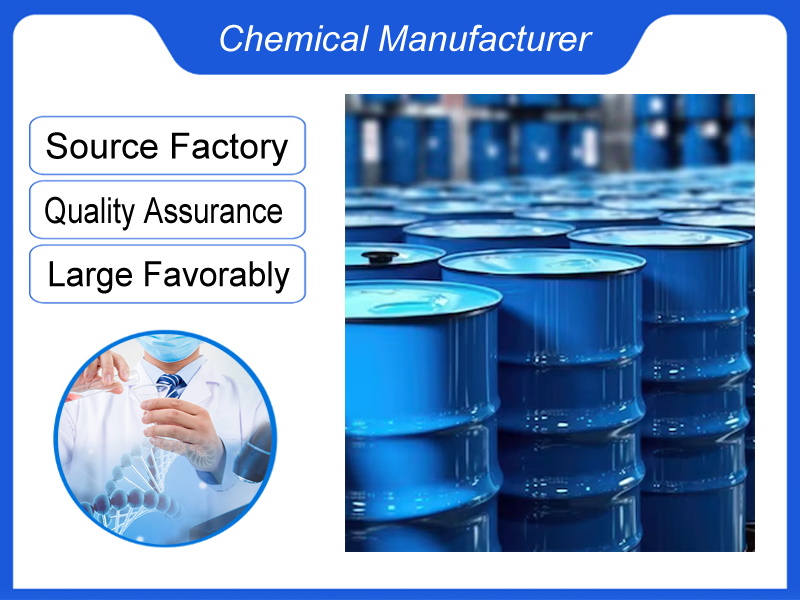
Colistin Sulfate CAS 1264-72-8
We are a manufacturer based in China. We specialize in providing high-quality Colistin Sulfate CAS 1264-72-8 for industrial clients across various sectors. Whether you need chemicals consultation or technical support, our team is here to help.
Category:Active Pharmaceutical Ingredients Own Brand:MT /MOQ:100KG /From China/ B2B only.
Introduction
Colistin Sulfate is an antibiotic. It is produced by polymyxin bacteria and has strong antimicrobial activity against Gram-negative bacteria. It is used to treat intestinal diseases caused by gram-negative bacteria.
Molecular Formula: C52H98N16O13
Molecular Weight:1155.43
CAS No.:1264-72-8
Description
Colistin Sulfate is the sulfate salt of an antibacterial substance produced by the growth of Bacillus polymyxavar colistinus.
Application
Colistin sulfate is an antibiotic, used to treat intestinal diseases caused by gram-negative bacilli, and has a certain growth-promoting effect.
(1) It has strong resistance to Gram-negative bacilli. Especially for E. coli, Salmonella, Pseudomonas aeruginosa, it has a specific developmental hindering effect.
(2) It has the effect of killing bacteria. By blocking the selective permeability function of the cell membrane, the bacteria die
(3) There is almost no problem of drug resistance. No R factor resistance was found.
(4) Synergistic effect with anti-Gram-positive bacteria drugs. Combined with bacitracin zinc, flavomycin, sulfonamides, semi-synthetic penicillin, gentamicin, etc., the effect is better.
(5) No residue. In oral administration, it is almost not absorbed by the intestinal tract, but in intramuscular injection, the blood is absorbed well, so there is no need to worry about residues in animal products.
Packing and Storage
Preserve in tight containers.
Minimum Order
One package
(6) Promote the growth of livestock and poultry, prevent and treat infectious enteritis of livestock and poultry.
Colistin Sulfate Introduction
| Item | Details |
| Basic Information | Colistin sulfate, with the CAS number 1264 – 72 – 8. is a polypeptide antibiotic. Its chemical structure consists of a cyclic peptide moiety with a fatty acid side – chain. The general chemical formula for colistin is C₅₂H₉₈N₁₀O₁₉, and in the sulfate form, it is a salt with sulfuric acid. It appears as a white to yellowish – white powder. It has good solubility in water, which is beneficial for formulating it into injectable solutions, oral formulations, and topical creams. |
| Pharmacological Action | Colistin sulfate acts by binding to the lipopolysaccharide (LPS) component of the outer membrane of Gram – negative bacteria. This binding disrupts the integrity of the outer membrane, leading to increased membrane permeability. As a result, essential intracellular components leak out, and the bacteria are more vulnerable to other antibacterial agents. Additionally, colistin can also interact with the cytoplasmic membrane, further disrupting bacterial cell function. It has a narrow – spectrum antibacterial activity, primarily targeting Gram – negative bacteria. It is highly effective against Pseudomonas aeruginosa, Escherichia coli, Klebsiella pneumoniae, and Acinetobacter baumannii, especially multidrug – resistant strains of these bacteria. |
| Clinical Applications | 1. Treatment of Multidrug – Resistant Gram – Negative Infections: – In human medicine, colistin sulfate is often used as a last – resort antibiotic for the treatment of severe infections caused by multidrug – resistant Gram – negative bacteria. For example, in cases of hospital – acquired pneumonia or bloodstream infections caused by multidrug – resistant Pseudomonas aeruginosa or Klebsiella pneumoniae, colistin sulfate may be administered intravenously. 2. Gastrointestinal Decontamination: – It can be used orally for gastrointestinal decontamination, especially in patients with hepatic encephalopathy. By reducing the load of ammonia – producing bacteria in the gut, it helps lower blood ammonia levels. 3. Topical Applications: – In topical creams and ointments, colistin sulfate is used to treat skin infections caused by Gram – negative bacteria. It can be used for treating infected wounds, burns, and skin ulcers when the causative organisms are sensitive. 4. Veterinary Medicine: – In veterinary practice, it is used to treat various infections in animals caused by Gram – negative bacteria. For example, it can be used to treat respiratory and gastrointestinal infections in livestock and poultry. |
| Adverse Reactions | 1. Nephrotoxicity: One of the most common and serious side effects of colistin sulfate is nephrotoxicity. It can cause damage to the kidneys, leading to acute tubular necrosis and impaired renal function. Symptoms may include increased serum creatinine levels, decreased urine output, and electrolyte imbalances. The risk of nephrotoxicity is higher with higher doses and longer treatment durations. 2. Neurotoxicity: Colistin sulfate can cause neurotoxicity, presenting as paresthesia (tingling or numbness), dizziness, ataxia, and in severe cases, respiratory paralysis. These neurological symptoms are usually reversible upon discontinuation of the drug. 3. Allergic Reactions: Allergic reactions can occur, ranging from mild rashes, itching, and hives to severe anaphylactic shock. Patients with a history of allergic reactions to colistin or related compounds are at a higher risk. 4. Gastrointestinal Effects: When used orally, it can cause nausea, vomiting, diarrhea, and abdominal pain. These effects are due to its impact on the normal gut flora and possible direct irritation of the gastrointestinal mucosa. 5. Ototoxicity: Although less common than nephrotoxicity and neurotoxicity, ototoxicity has been reported. It can cause hearing loss and balance problems, especially in patients with pre – existing hearing impairment or those receiving high doses of colistin sulfate. |
| Drug Interactions | 1. With Other Nephrotoxic Drugs: Concurrent use with other nephrotoxic drugs, such as aminoglycosides, vancomycin, or non – steroidal anti – inflammatory drugs (NSAIDs), can significantly increase the risk of nephrotoxicity. 2. With Neuromuscular – Blocking Agents: Colistin sulfate can enhance the neuromuscular – blocking effect of drugs like succinylcholine and tubocurarine, leading to increased muscle weakness and respiratory depression. 3. With Diuretics: Diuretics, especially loop diuretics like furosemide, can increase the risk of nephrotoxicity and ototoxicity when used in combination with colistin sulfate. 4. With Probenecid: Probenecid can inhibit the renal tubular secretion of colistin, increasing its plasma concentration and half – life. This may enhance the antibacterial effect but also increase the risk of side effects. |
| Special Population Considerations | 1. Pregnant Women: The use of colistin sulfate during pregnancy is generally not recommended due to the potential risk of nephrotoxicity and neurotoxicity to the fetus. However, in life – threatening situations where no other suitable alternatives are available, it may be used with careful monitoring. 2. Breastfeeding Women: Colistin is excreted in breast milk in small amounts. Although the risk to the breastfeeding infant is relatively low, alternative medications may be preferred if possible. 3. Patients with Renal Impairment: In patients with renal impairment, the clearance of colistin sulfate is significantly reduced. Dosage adjustment is crucial, and close monitoring of serum drug levels and renal function is required to avoid toxicity. 4. Elderly Patients: Elderly patients are more sensitive to the nephrotoxic and neurotoxic effects of colistin sulfate. Close monitoring and appropriate dosing adjustments are necessary. |
If you're ready to take the next step, Leave your message below and we’ll reply soon. 20+ years of chemical manufacturing & export experience, a partner you can trust.





